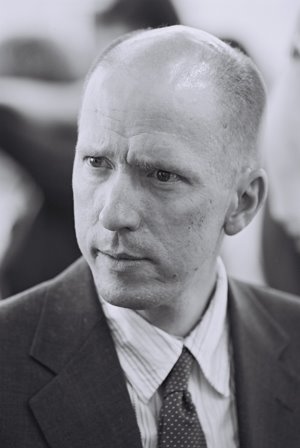The sudden collapse of the Soviet Union does look like the kind event described in the complexity models. But i don't think we can overlook the personal role of Gorbachev who could have elected to resist the breakdown but opted to facilitate it.
Now think back to the Great Depression, another collapse, it would seem, of a complex system.
But Hoover and the Federal Reserve didn't resist either, they took actions that probably accelerated the collapse.
Now think of the most recent crisis: Paulson, Bernanke, Geithner, Summers, and Obama all resisted the collapse--pushing back with aggressive monetary and fiscal policy--and succeeded in preventing another great depression. Billions of people whose livelihoods were saved should breath a sigh of relief that Bernanke et al didn't consult with Ferguson, who apparently thinks easy money and stimulus will cause America's collapse, whereas the near obvious truth is that they prevented it.
Last point: in the traditional use of the word, Empires need colonies or at least a large swath of conquered territory. What is America's empire? Puerto Rico, Guam? He can't be referring to a couple small islands. Ferguson must be talking about Afghanistan and Iraq but these are not America's colonies; they are policing actions. US losses in Afghanistan are very sad, as are the associated civilian deaths but the numbers are very small relative to past conflicts that ended empires. And recently the US and Afghan army took over the Taliban's last city in Afghanistan (Marja). So how do we see echoes of the past (Soviets, English, and Greek disasters in the region) in the Afghanistan of 2010?
Now think back to the Great Depression, another collapse, it would seem, of a complex system.
But Hoover and the Federal Reserve didn't resist either, they took actions that probably accelerated the collapse.
Now think of the most recent crisis: Paulson, Bernanke, Geithner, Summers, and Obama all resisted the collapse--pushing back with aggressive monetary and fiscal policy--and succeeded in preventing another great depression. Billions of people whose livelihoods were saved should breath a sigh of relief that Bernanke et al didn't consult with Ferguson, who apparently thinks easy money and stimulus will cause America's collapse, whereas the near obvious truth is that they prevented it.
Last point: in the traditional use of the word, Empires need colonies or at least a large swath of conquered territory. What is America's empire? Puerto Rico, Guam? He can't be referring to a couple small islands. Ferguson must be talking about Afghanistan and Iraq but these are not America's colonies; they are policing actions. US losses in Afghanistan are very sad, as are the associated civilian deaths but the numbers are very small relative to past conflicts that ended empires. And recently the US and Afghan army took over the Taliban's last city in Afghanistan (Marja). So how do we see echoes of the past (Soviets, English, and Greek disasters in the region) in the Afghanistan of 2010?
Ok, really last point. The suspicion that he's become a total charlatan hardens further when he starts quoting that other great charlatan about "fat tails" and "black swans".

